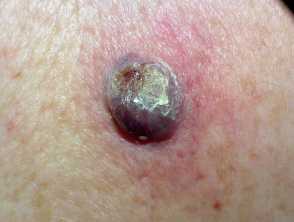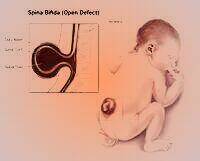Long-Term Stable Wearable Patch Can Measure Important Biomarkers in Sweat
(more…)
Study Identifies Genes Linked to Nodular Melanoma
Outcomes of Prophylactic Salpingo-Oophorectomy After BRCA1/2 Breast Cancer Resection
Columbia Study Highlights Driving Risks in Adults with ADHD
UCLA Animal Study Finds It is Becoming Possible To Partially Restore Walking By Stimulating Nerve Fibers
Low Income and Minority Children Risk Impaired Cognitive Function from Environmental Hazards
MedicalResearch.com Interview with:
Dr. Devon Payne-Sturges, DrPH, MPH, MEngr
Associate Professor
Maryland Institute for Applied Environmental Health
School of Public Health
University of Maryland, College Park
MedicalResearch.com: What is the background for this study?
Response: My co-authors and I conducted this study to fill a knowledge gap and to inform the work of Project TENDR. No systematic or scoping review had examined both exposure disparities and the joint effects of combined exposures of environmental neurotoxicants and social disadvantage as they relate to disparities in neurodevelopmental outcomes specifically among children living in the U.S.
Our study is the first to summarize the evidence on 7 neurotoxicants that children in the U.S. are routinely exposed to and we examined both disparities in these exposures and disparities in the effects of those exposures on children’s brain development, cognition, and behavior by race, ethnicity, and economic status.
We reviewed over 200 independent studies spanning five decades from 1974 to 2022 on social disparities in exposure to 7 exemplar neurotoxic chemicals and pollutants, including chemical mixtures, and their relationship with disparities with neurodevelopmental outcomes among children in the U.S.
USPSTF: Blood Pressure Should Be Monitored Throughout Pregnancy
 Esa M. Davis, M.D., M.P.H , F.A.A.F.P
Professor of Medicine and Family and Community Medicine
Associate Vice President of Community Health and
Senior Associate Dean of pPopulation Health and Community Medicine
University of Maryland School of Medicine
Dr. Davis joined the U.S. Preventive Services Task Force in January 2021
MedicalResearch.com: What is the background for this study?
Response: Hypertensive disorders of pregnancy, including gestational hypertension, preeclampsia, and eclampsia, are among the leading causes of serious complications and death for pregnant people in the United States.
Pregnant women and pregnant people of all genders should have their blood pressure measured at each prenatal visit to help find and prevent serious health issues related to hypertensive disorders of pregnancy. (more…)
Esa M. Davis, M.D., M.P.H , F.A.A.F.P
Professor of Medicine and Family and Community Medicine
Associate Vice President of Community Health and
Senior Associate Dean of pPopulation Health and Community Medicine
University of Maryland School of Medicine
Dr. Davis joined the U.S. Preventive Services Task Force in January 2021
MedicalResearch.com: What is the background for this study?
Response: Hypertensive disorders of pregnancy, including gestational hypertension, preeclampsia, and eclampsia, are among the leading causes of serious complications and death for pregnant people in the United States.
Pregnant women and pregnant people of all genders should have their blood pressure measured at each prenatal visit to help find and prevent serious health issues related to hypertensive disorders of pregnancy. (more…)Morning Workout Is Promising Tool for Weight Control
 Tongyu Ma, Ph.D., MBBS, ACSM EP-C
Assistant Professor of Exercise Physiology
Franklin Pierce University
WeightControl.com: What is the background for this study?
Response: The benefit of Moderate-to-Vigorous Physical Activity (MVPA) on weight management is widely recognized. We found that timing also matters. Individuals who accumulated MVPA in the early morning had lower BMI and WC, compared to those whose MVPA were in the midday or evening.
(more…)
Tongyu Ma, Ph.D., MBBS, ACSM EP-C
Assistant Professor of Exercise Physiology
Franklin Pierce University
WeightControl.com: What is the background for this study?
Response: The benefit of Moderate-to-Vigorous Physical Activity (MVPA) on weight management is widely recognized. We found that timing also matters. Individuals who accumulated MVPA in the early morning had lower BMI and WC, compared to those whose MVPA were in the midday or evening.
(more…)Emergency Room Study Finds ChatGPT Able to Think Much Like a Human Doctor
Study Finds Children of Addicted Parents Have Risk of Intellectual Disability
MedicalResearch.com Interview with:
 Lotfi Khemiri
Centre for Psychiatry Research
Stockholm, Sweden
MedicalResearch.com: What is the background for this study?
Response: Our study used large-scale national register data in close to 2 million children, and found that parental abuse of both alcohol and drugs are associated with increased risk of intellectual disability in the offspring. Importantly, the risk increase was observed in both mothers and fathers which to the best of our knowledge is a novel finding, and may be explained by both genetic and environmental factors including toxic effects of substance intake on fetal development.
(more…)
Lotfi Khemiri
Centre for Psychiatry Research
Stockholm, Sweden
MedicalResearch.com: What is the background for this study?
Response: Our study used large-scale national register data in close to 2 million children, and found that parental abuse of both alcohol and drugs are associated with increased risk of intellectual disability in the offspring. Importantly, the risk increase was observed in both mothers and fathers which to the best of our knowledge is a novel finding, and may be explained by both genetic and environmental factors including toxic effects of substance intake on fetal development.
(more…)
Birthweight, Gestational Age and Later Cognitive Performance
USPSTF: PrEP Helps Prevent HIV but Not Other STDs. Safe Sex Still Important
No Observed Increase in Prescription Stimulant Use After Legalization of Medical Marijuana
Surgery: Post-Op Outcomes Differ by Gender of Surgeon
- We have been studying how the primary treating surgeons sociocultural characteristics impact the recovery of patients they are looking after.
- Specifically, we have been studying the effect of surgeon sex on outcomes such as death, complications and readmission after common and complex surgeries. These are outcomes that are important to patients and the health system.
- Previously, we showed that patients with a female surgeon had better short term (30 day) outcomes than similar patients having surgery with a man. This study asked the question of whether the sex of a patient’s surgeon affects patients’ longer term outcomes at 90 days and 1 year, after surgery.
Psoriasis: Case Study Finds Weight Loss Drug Semaglutide Reduced Fat Around Heart
Hemodialysis: Canadian Study Describes Improved Membrane to Reduce Complications
Associate Professor, Chemical and Biomedical Engineering
Department of Chemical and Biological Engineering
Division of Biomedical Engineering
University of Saskatchewan MedicalResearch.com: What is the background for this study? Response: The background of this study lies in the pursuit of improving the compatibility of dialysis membranes used in hospitals. My team sought to enhance the performance of these membranes by incorporating heparin, a widely recognized anticoagulant. Existing heparin-grafted membranes carried a negative charge, resulting in adverse blood-membrane interactions and complications for dialysis patients. The study aimed to overcome these issues and create a neutralized membrane surface that maintains the benefits of heparin while minimizing undesirable interactions. (more…)
USC Study Finds Strong Correlation Between Estrogen-Reactive Hormones and Depressive States
AI Model Uses Healthy Chest X-Rays to Predict Age
Columbia Study Finds Large Increase in Gender-Affirming Surgery Over Time
Biosignatures Allow Single Blood Test to Identify Multiple Causes of Fever in Children
Engineered Bacteria Can Act as Biosensors to Detect Cancer DNA
UBC Study Explores Link Between Early Microbiome and Infant Brain Development
USPSTF: Anyone Who Could Become Pregnant Should Take Folic Acid To Prevent Spinal Cord Defects
Epigenetic Approach to Pediatric and Adult Brain Tumors
When It Comes to Blood Pressure Cuffs, Size Matters
Pleasant Odors Used to Improve Memory Performance in Older Adults
Department of Neurobiology and Behavior
Center for the Neurobiology of Learning and Memory
Institute for Memory Impairments and Neurological Disorders
University of California Irvine MedicalResearch.com: What is the background for this study? What types of aromas were employed? Response: The olfactory system is the only sense to have a direct “superhighway” access to the memory centers of the brain. The other senses can contribute to the health of the memory centers, but they have to take the brain's “side streets” to get there and consequently have much less impact on the health of those centers. If there is olfactory loss for any reason, the memory centers start to deteriorate. Stimulation of those memory centers with odors allows those centers to allow for better memory. We used naturally occurring pleasant odors: rose, orange, eucalyptus, lemon, peppermint, rosemary, and lavender. (more…)






























